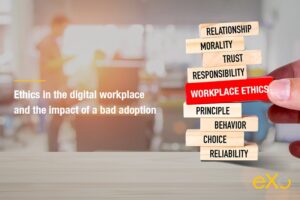Nora Fatehi’s Digital Defense: A Case Study in Reputation Crisis
8 min read
In an era where personal and professional lives are increasingly intertwined with digital narratives, the recent allegations involving Bollywood actor-dancer Nora Fatehi in a Mumbai drug racket investigation have served as a potent real-world case study in the critical discipline of digital reputation crisis management. Fatehi’s swift and strongly worded public denial, issued via Instagram Stories, highlights the evolving strategies public figures, and indeed anyone with a digital footprint, must employ to safeguard their image in the face of potentially damaging online chatter and formal accusations. Her immediate pushback against claims she was involved, labeling them “lies” and asserting her status as an “easy target,” underscores a modern approach to reclaiming one’s narrative before misinformation can solidify.
The speed at which news, both verified and unverified, travels across digital platforms has dramatically altered the landscape of public relations and personal branding. For celebrities like Nora Fatehi, whose careers depend heavily on public perception and endorsement deals, any shadow of scandal can have immediate and severe repercussions. However, this phenomenon extends far beyond the realm of stardom. In today’s interconnected world, an individual’s online reputation is scrutinised across various facets of life, from employment opportunities to academic admissions, and crucially, for international mobility. The Mumbai Police’s ongoing investigation, which reportedly implicates high-profile Bollywood personalities, models, and individuals with alleged underworld links, immediately triggered widespread online speculation. Fatehi’s response was not just a personal defense; it was a textbook example of attempting to control the narrative at its infancy, a skill that is increasingly vital for anyone navigating a public or semi-public life.
Nora Fatehi’s Proactive Digital Defense: A Play-by-Play
Nora Fatehi distinguished herself as the first celebrity named in the alleged drug racket to publicly address the accusations. Taking to her Instagram Stories, a platform renowned for its immediate and direct reach to millions of followers, Fatehi issued a robust denial. Her statement was direct and unapologetic, proclaiming, “FYI I DONT go to Parties.. Im constantly on flights.. Im a work holic, i dont have a personal life.. I dont associate myself with people like that.. and on my off days im at home on a beach in dubai or with my high school friends! I spend my entire days and nights working on my dreams and goals! Dont believe anything you read! It seems like my name is an easy target! but i wont allow it to happen this time! It happened once before, you guys tried to destroy me with LIES and it didnt work.. i watched silently as everyone tried their best to slander my name, smear my reputation and use me as clickbait! Please refrain from using my name and image on situations that have absolutely NOTHING to do with me! This will come with a heavy heavy price! Respectfully.”
This assertive stance, delivered within hours of her name appearing in media reports referencing a police remand note, demonstrates several key aspects of effective digital reputation crisis management. Firstly, the choice of platform: Instagram Stories offers an unmediated channel, allowing Fatehi to communicate directly with her audience without journalistic filters. Secondly, the tone: firm, confident, and unequivocal, leaving no room for ambiguity regarding her alleged involvement. Thirdly, the strategic framing: she portrayed herself as a dedicated professional and a victim of baseless targeting, appealing to public empathy and previous experiences of alleged defamation. The warning of “a heavy heavy price” for continued misrepresentation also signals a readiness for legal recourse, adding weight to her denial.
The core of the investigation, as reported by The Times of India, centres around an alleged drug syndicate operated by Mohammed Salim Mohammed Suhail Shaikh, alias Lavish, who reportedly organised drug-fuelled parties attended by various celebrities. The remand copy itself, which is a formal document submitted to the court, explicitly named Nora Fatehi alongside other prominent figures like Shraddha Kapoor and relatives of Dawood Ibrahim. While the legal process of summoning these individuals for statements is underway, Fatehi’s immediate public counter-narrative serves as a critical pre-emptive strike in the court of public opinion, attempting to mitigate damage before formal proceedings even begin. This agility is a hallmark of modern digital reputation crisis management, where speed often dictates the ultimate trajectory of public perception.
The Far-Reaching Impact of Digital Reputation on International Mobility
While Nora Fatehi’s case is set against the backdrop of celebrity and scandal, the principles of digital reputation crisis management have profound implications for individuals from all walks of life, particularly those aspiring for international education or career opportunities. In an increasingly globalised world, a clean and credible digital footprint is no longer a luxury but a necessity, and a tarnished online image can present significant barriers to achieving international goals.
Immigration authorities, universities, and prospective employers worldwide are integrating digital scrutiny into their assessment processes. Social media profiles, online news articles, public records, and even forum discussions are routinely reviewed to gain a comprehensive understanding of an applicant’s character, affiliations, and overall trustworthiness. Any negative association, even if unproven or falsely attributed, can raise red flags. For international students, this could mean rejection from desired academic institutions, denial of scholarships, or even outright visa refusal. Immigration officers, particularly in countries like the USA, Canada, UK, and Australia, are empowered to deny visas based on perceived character issues, public safety concerns, or affiliations that may be deemed undesirable, and a problematic online profile can contribute significantly to such assessments.
Consider a scenario where an international student, through no fault of their own, finds their name linked to a sensational news story or a viral rumour. Without a proactive strategy for digital reputation crisis management, this fleeting association could be misinterpreted by visa officers or admissions committees, jeopardising years of academic planning and financial investment. The sheer volume of information available online means that decision-makers often rely on quick searches, and if the initial results paint an unfavourable picture, it can be incredibly difficult to reverse that first impression. Furthermore, countries with stringent character requirements for immigration might view even unproven allegations as a risk factor, requiring applicants to go to extraordinary lengths to provide explanations and counter-evidence.
Expert Insights for Robust Digital Reputation Crisis Management
Learning from high-profile cases like Nora Fatehi’s, and understanding the stakes for international aspirants, it becomes clear that a strategic approach to digital reputation crisis management is indispensable. Here are key insights and practical tips for individuals to protect and proactively manage their online image:
- Proactive Monitoring is Paramount: Implement regular checks for your name online. Tools like Google Alerts can notify you whenever your name or specific keywords appear in search results. This allows for early detection of potential issues, much like Fatehi’s team likely monitors media for her mentions. For international students, this extends to checking university forums, local news in target countries, and social media platforms.
- Swift and Decisive Response: Delay is the enemy of reputation. As seen with Nora Fatehi, an immediate and clear response can prevent a crisis from escalating. If false information or allegations surface, address them promptly, unequivocally, and on appropriate platforms. This doesn’t always mean a public statement; sometimes a private correction or legal notice is more suitable.
- Consistency Across All Platforms: Ensure your message, if you issue one, is consistent across all your digital presences. Conflicting statements or varied tones can undermine credibility. Your personal website, LinkedIn profile, and social media accounts should all reflect a coherent and positive narrative about your professional and personal life.
- Build a Strong, Positive Digital Footprint: The best defense against negative content is a robust offense of positive, accurate information. Actively share your achievements, participate in constructive online discussions, maintain professional profiles, and contribute to your field. This positive content acts as a buffer, pushing down any potentially damaging search results. For students, showcasing academic projects, volunteer work, and extracurricular achievements online can create a compelling profile.
- Understand the Nuances of Transparency: While Fatehi issued a strong denial, the level of transparency required can vary. Sometimes, a detailed explanation is necessary; at other times, a firm denial is sufficient. Always consult with legal and PR experts to determine the most effective strategy, especially when allegations involve serious matters that could impact visa eligibility.
- Seek Professional Guidance for Complex Cases: When faced with severe allegations or persistent online defamation, engaging legal counsel and professional reputation management firms is crucial. Fatehi’s warning about “heavy heavy price” indicates her readiness for legal action, which is a vital component of any robust crisis management plan. These professionals can advise on legal recourse, content removal, and strategic communication.
- Specific Considerations for International Aspirants:
- Digital Cleanliness: Review all your social media posts, comments, and shared content from the past. Delete anything that could be misinterpreted as inappropriate, illegal, or reflecting poor judgment. Remember, cultural interpretations vary across countries.
- Privacy Settings: Maximise privacy settings on personal social media, but be aware that some immigration authorities might request access or can find publicly available information regardless.
- Professional Presence: Maintain a professional LinkedIn profile that highlights your academic and career aspirations. This acts as a positive professional anchor online.
- Understanding Immigration Scrutiny: Be aware that immigration authorities specifically look for associations with criminal activities, extremist views, fraud, or any behaviour that might pose a security risk. Even indirect online connections can be scrutinised.
- Documentation and Explanations: If you have any questionable online presence that you cannot remove (e.g., a news article with misinformation), be prepared to provide clear, documented explanations and context to immigration authorities or educational institutions.
Looking Ahead: The Enduring Power of Digital Narratives
The Nora Fatehi case, like many high-profile incidents before it, reinforces that in the modern era, a digital reputation is a fluid, vulnerable, and incredibly powerful asset. The speed of information dissemination means that crises can erupt and spread globally within minutes, often before official statements can even be drafted. This necessitates a paradigm shift from reactive damage control to proactive and continuous digital reputation crisis management.
The future will see even greater integration of digital footprint analysis in all aspects of life, from personal banking to national security clearances. For individuals planning international journeys, the ability to present a consistently positive and credible online narrative will only grow in importance. The lessons from Nora Fatehi’s immediate and forceful denial are a reminder that taking ownership of one’s digital narrative, understanding the channels of communication, and being prepared to defend one’s integrity are no longer optional but essential skills for navigating an increasingly scrutinised digital world.
Reach out to us for personalized consultation based on your specific requirements.



